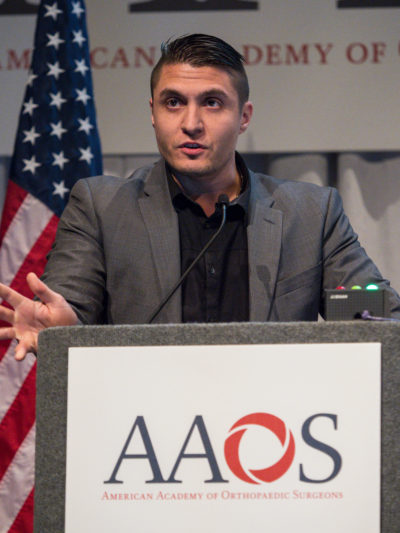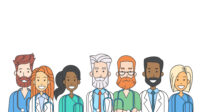We all come from different backgrounds. I remember my incoming medical school class at Penn State consisted of a wide range of individuals—some that appeared to be in high school, and others that were clearly seasoned adults into their mid-forties with multiple careers and previous occupations under their belts. I have always tended to particularly admire the latter group of individuals, especially the ones who seemed to be able to apply learned and mastered concepts in other fields to gain a competitive advantage in their medical training.
Regardless of if you were or are a “traditional” or “non-traditional” (I hate those terms, by the way) student/resident/trainee, I would encourage you to pay particular attention to hobbies, interests, and experiences that you can utilize to become a more well-rounded physician of tomorrow.
Establishing Patient Rapport
Robots can’t relate
Patients appreciate physicians they can relate to – an important element of your training should be to focus on becoming better at establishing patient rapport. While this comes more naturally to some people, this ultimately gets easier as you become more experienced and established with your clinical fund of knowledge. As your confidence in these areas grows, it becomes easier to relay diagnoses and treatment plans to your patients and their family members.
The patient remains the focus
As I have noted in previous blogs, if your ultimate focus is on providing excellent patient care, then you will not go wrong. In addition, actively think of what it would be like to be in their shoes as you are communicating the plan of care. It is very easy to lose sight of how a patient may feel as you get deeper into your training and careers. Constantly remind yourself that even though it is your tenth time of the day discussing a total knee replacement at a clinic, it is (most likely) your patient’s first time hearing the information.
I will relay a quote from another mentor of mine, “never forget the power of one.”
Master the art of communicating at ALL levels of medical education
Know your audience. Some patients do more online research about a procedure than others. Some patients will know nothing about their own health, let alone an upcoming total hip replacement. Some of your patients will be well-known, intelligent nurses and physicians that you work with on a daily basis. That being said, there will always be an appreciable knowledge gap that you should not fail to recognize.
A sound principle to keep at the heart of all patient communication is to maintain a focused, simple, straightforward discussion with your patients. In addition, never provide guarantees or absolutes in medicine, and always discuss the “risks versus benefits” nature of our treatment modalities. Most patients do not realize that all treatments come with varying degrees of associated risks. Even the most ideal, healthy surgical candidate can experience a major complication.
Establish your go-to phrases for the most common procedures and diagnoses first – memorize them if you have to – and appreciate which of your attendings have mastered patient rapport – these are the ones you should focus and start to learn your phrases from in the clinic and on the clinical wards. Then use these phrases in your own independent evaluations.
I can assure you that the element of effective patient communication is easily overlooked in our training. A major reason for this is the lack of formality in this process that is an inherent part of our training system. This subtle area presents an opportunity to separate the good from the great physicians and surgeons. It is easy to perfect your oral patient presentations and formal medical communication skills because you are often getting direct feedback from your attending. In stark contrast, your communication with patients and families will often happen when you are alone and on-call during the sleepless hours of a 24-hour shift. Thus, your own progress and subsequent performance evaluations are left to you and you alone.
Integrated Educational Continuum
So how can previous experiences apply to medicine? Can a background as a janitor, waiter/waitress, or basketball player really help provide you with an edge as a physician-in-training? Yes.
First, consider how your respect for all individuals at the hospital impacts the flow of the system. I have seen days in the operating room vary greatly from surgeon to surgeon. Many times, it can reflect an underlying level of respect he or she has for the cleaning staff, turnover crew, circulating nurses, and scrub techs.
Secondly, physicians are, to an extent, part of the “service” industry. We must utilize our skills in order to provide a service to our patients so that they can maintain their health. We strive to help our patients and advocate for their medical care, not just because it is our job, but because we love our jobs. If you had a previous occupation in the service industry, consider how you can utilize the personal skills you acquired towards your medical career.
Finally, if you have a background as a member of a sports team (or working in any applicable team-based environment), consider the similarities you will find in medicine. I know personally, I inherently search for this during application season when I am preparing for conducting interviews for potential candidates. Many of the flaws you will encounter in the field of medicine can be traced back to breakdowns in basic communication principles. I challenge you to always consider patient care in a team-based approach.
To conclude, I hope you have gained some insight as to how to utilize taking advantage of pulling from all previous personal and career experiences and applying them to help you become a better and successful physician. Learn from each day and each experience, regardless of the setting.





